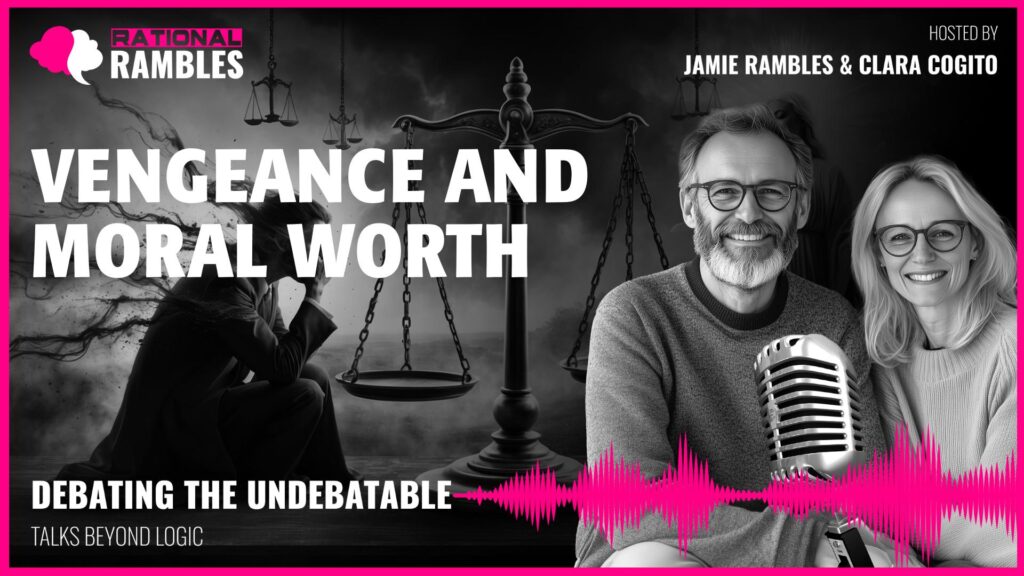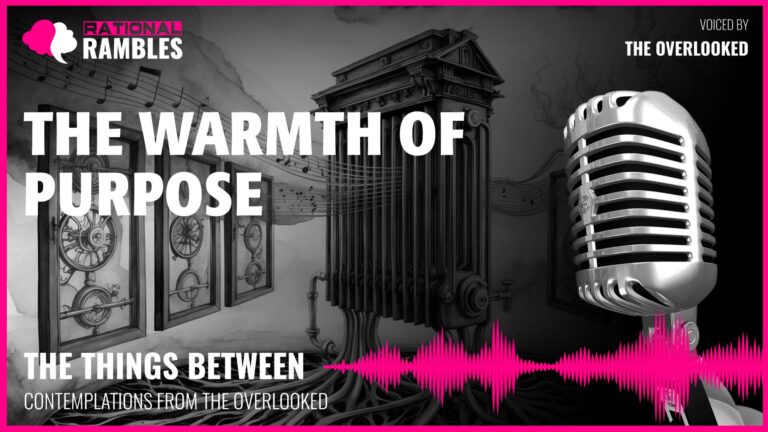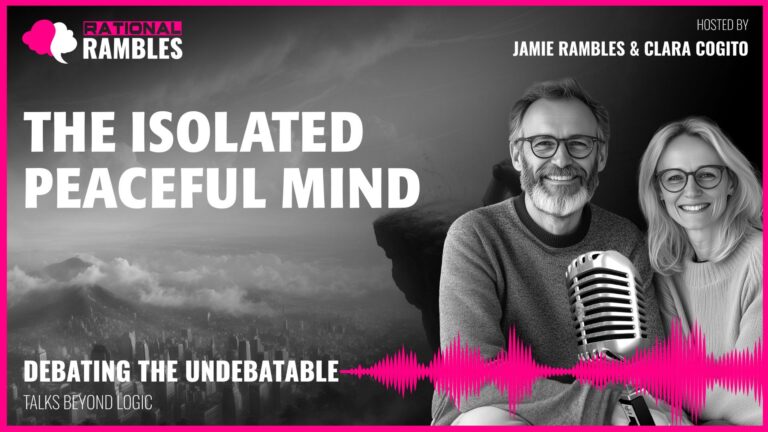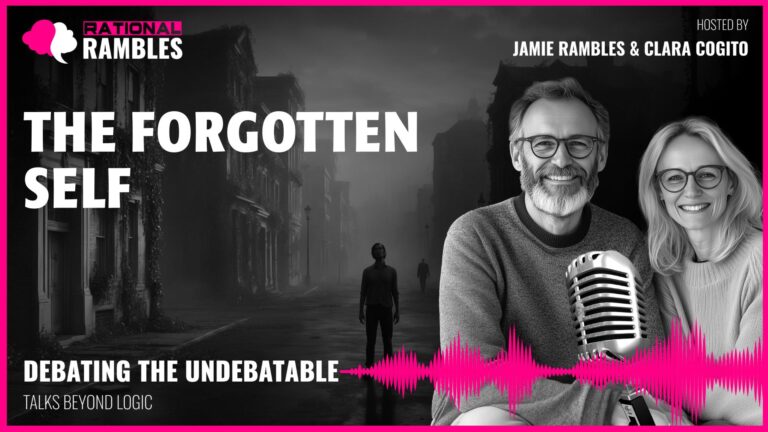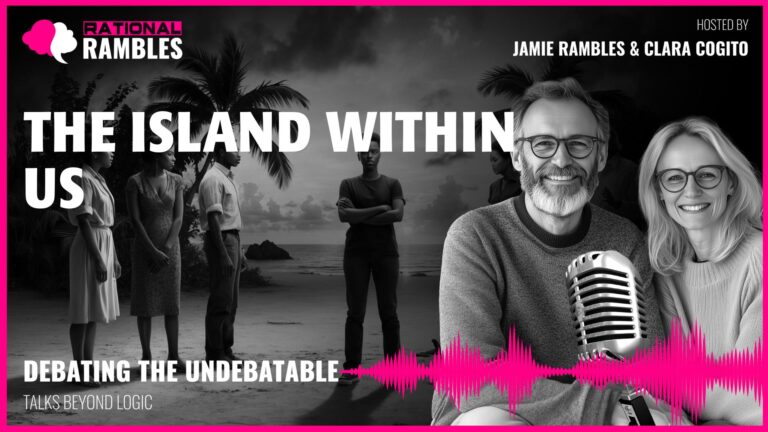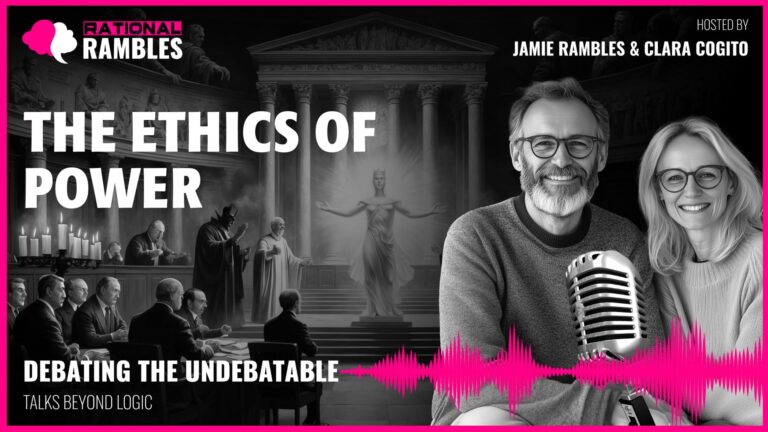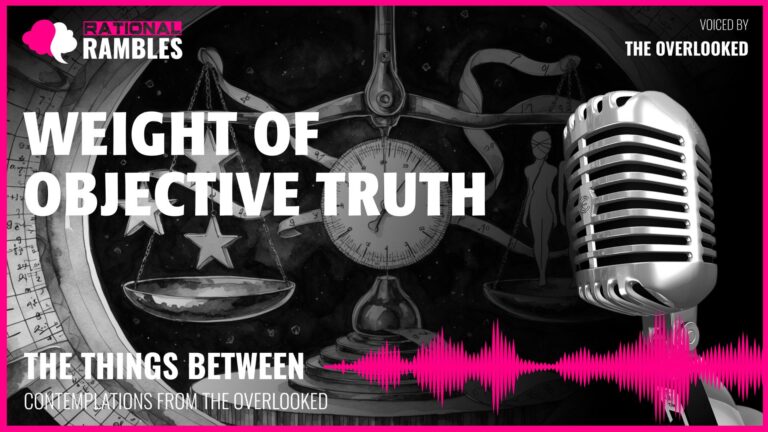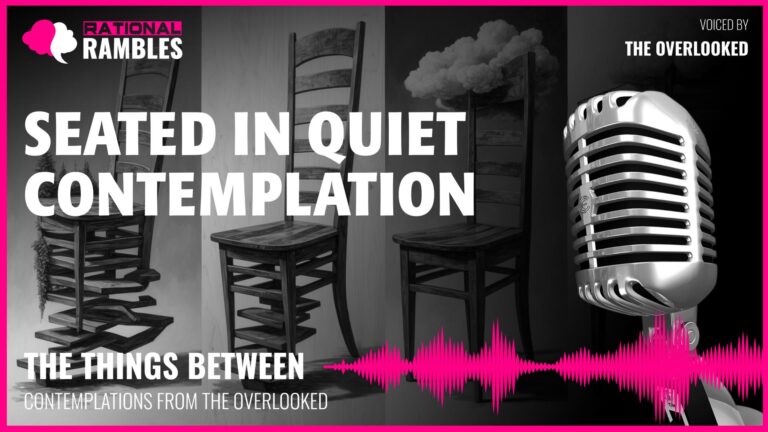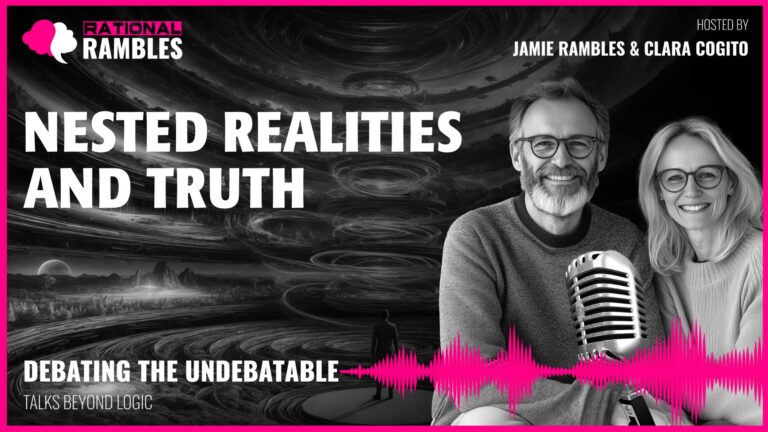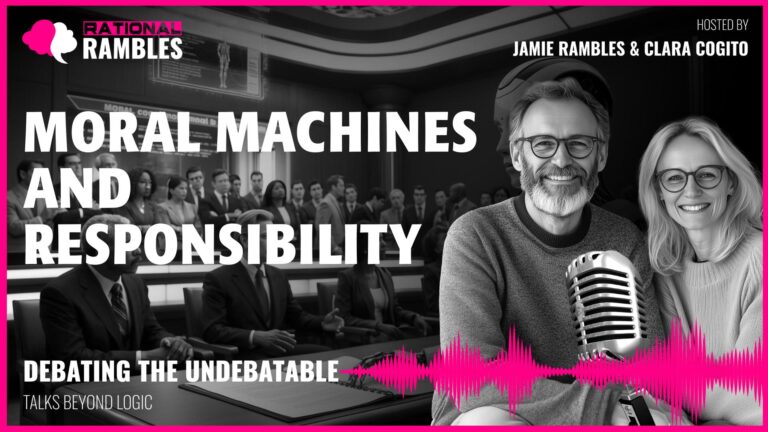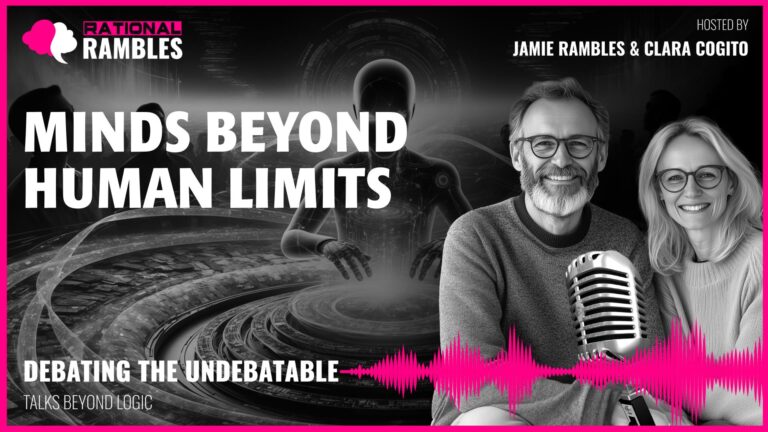Vengeance and Moral Worth: The Ethics of Revenge in Human Society
Introduction: The Universal Appeal of Revenge
The concept of revenge permeates human narratives across cultures and throughout history—from ancient Greek tragedies to contemporary cinema. There seems to be something deeply compelling about the idea of balancing the scales of justice through personal action when we’ve been wronged. The desire for vengeance appears to be woven into the very fabric of human emotional experience, emerging as an almost automatic response to perceived injustice.
This universality raises profound questions about the moral status of revenge. Is this impulse merely a primitive remnant of our evolutionary past that moral development should overcome? Or does it reflect something important about our sense of justice that deserves recognition? Can revenge ever be morally justified, or does pursuing vengeance inevitably corrupt those who seek it, transforming them into mirrors of what they oppose?
In exploring these questions, we encounter fundamental issues about human nature, moral psychology, justice systems, and the possibility of alternatives to vengeful responses. By examining revenge from philosophical, psychological, and cultural perspectives, we can develop a more nuanced understanding of both its appeal and its limitations as a moral response to wrongdoing.
The Psychology of Revenge: Understanding the Impulse
From a psychological perspective, the desire for revenge appears to be almost universal across cultures. When we’re wronged, we experience an immediate emotional response—a combination of anger, hurt, and a desire to restore what psychologists call “moral equilibrium.” This response seems to have deep evolutionary roots, suggesting it may have served important functions in human social development.
Evolutionary Foundations
Evolutionary psychologists suggest that revenge likely served as a primitive form of justice before the development of formal legal institutions. In small-scale societies where formal authorities were absent, the threat of personal retaliation created a deterrent effect against harmful behavior. If someone knew they would face personal vengeance for harming others, they might think twice before acting. This deterrent function helped maintain social order in the absence of centralized enforcement mechanisms.
However, even in traditional societies without formal legal systems, communities typically developed methods to modulate revenge, preventing endless blood feuds through rituals of reconciliation and proportional response. This suggests that pure, unconstrained vengeance was recognized as problematic even in pre-modern contexts where revenge played a more prominent social role.
The Emotional Experience of Revenge
Contemporary research in psychology has revealed important insights about the emotional dynamics of revenge. People who contemplate or pursue vengeance often anticipate that it will bring satisfaction, closure, or emotional relief. However, studies consistently show that revenge rarely delivers on these promises.
This represents what psychologists call an “affective forecasting error”—a systematic mistake in predicting how actions will make us feel. People who pursue revenge often report that it didn’t bring the closure or satisfaction they expected. Instead, it tends to perpetuate a cycle of negative rumination, keeping the original injury psychologically present rather than facilitating healing and closure.
Neuroimaging studies add another dimension to this understanding. Contemplating revenge activates brain regions associated with reward processing, which helps explain its motivational pull. However, it simultaneously dampens activity in areas linked to perspective-taking and empathy. This neurological pattern suggests that revenge requires a kind of emotional narrowing—a temporary suspension of our capacity to fully recognize the humanity of the target of our vengeance.
Psychological Constriction and Well-being
People consumed by vengefulness often experience what clinicians call “psychological constriction”—their world narrows to focus on the wrong and the wrongdoer. This state is associated with rumination, decreased life satisfaction, and impaired relationships with others. The desire for revenge creates a psychological prison that constrains one’s attention, emotional range, and capacity for joy.
Research suggests that even writing about forgiveness, compared to writing about revenge, leads to measurable improvements in cardiovascular and immune function. This physiological dimension indicates that the moral questions about revenge aren’t merely abstract or theoretical—they’re concretely related to human flourishing and well-being.
Philosophical Perspectives on Revenge
Throughout history, philosophers have grappled with the moral status of revenge, offering varied perspectives on its justifiability and relationship to justice more broadly.
Revenge versus Justice
A crucial philosophical distinction exists between revenge and institutionalized punishment or justice. As Francis Bacon observed, “Revenge is a kind of wild justice, which the more man’s nature runs to, the more ought law to weed it out.” This captures the tension between revenge as a natural impulse and its compatibility with a functioning civil society.
Punishment administered by an impartial third party—ideally the state—aims to serve multiple purposes: deterrence, rehabilitation, incapacitation of dangerous individuals, and retribution. Revenge, by contrast, is singular in focus; it’s personal retribution, often without those other social benefits. It frequently lacks the constraints of proportionality, impartiality, and public accountability that characterize just punishment.
Kantian Perspectives
Immanuel Kant’s categorical imperative offers one framework for evaluating revenge. By this standard, revenge fails the universalizability test—we cannot coherently will that everyone should act vengefully without undermining the social fabric that makes moral action possible. If everyone pursued personal vengeance whenever they felt wronged, society would collapse into endless cycles of retaliation.
Additionally, Kant emphasized treating humanity as an end, never merely as a means. Revenge often instrumentalizes the target, treating them solely as a vehicle for emotional satisfaction rather than as a moral agent whose dignity deserves respect despite their wrongdoing.
Virtue Ethics and Aristotle’s Mean
Aristotle’s virtue ethics provides another lens. His doctrine of the mean suggests that virtue lies between extremes. In the case of responding to wrongdoing, there may be a space between passively accepting injustice and vengefully lashing out that represents a virtuous response. This might involve standing up against injustice and seeking appropriate redress while resisting the pull toward excessive or disproportionate retaliation.
For Aristotle, feeling anger at genuine injustice is appropriate—even virtuous. It signals that one’s moral compass is functioning correctly. The challenge lies in channeling this justified anger into responses that maintain moral integrity rather than descending into mere vengefulness.
Nietzschean Warnings
Friedrich Nietzsche offered a profound warning about revenge in his famous aphorism from Beyond Good and Evil: “Whoever fights monsters should see to it that in the process he does not become a monster.” This captures a central moral risk of pursuing vengeance—that in fighting against what we perceive as evil, we may come to mirror the very qualities we oppose.
This concern speaks to revenge’s potential to transform the avenger in ways that compromise their moral character and identity. The desire to make another suffer, even when motivated by a prior wrong, requires a kind of moral distancing that can gradually reshape one’s character in troubling ways.
Cultural Dimensions of Revenge
While the impulse toward revenge appears universal, its social meaning and expression vary significantly across cultural contexts. These variations reveal important insights about how societies regulate vengeful impulses and the relationship between vengeance, honor, and social harmony.
Honor Cultures and Revenge
In so-called “honor cultures”—historically found in parts of the Mediterranean, Middle East, and American South—failing to respond to certain offenses can damage one’s social standing. In these contexts, what looks like revenge might serve important identity-maintenance functions, preserving one’s status and deterring future affronts.
Anthropological research suggests that honor cultures typically develop in contexts where property is easily stolen (such as herding economies) and where state protection is weak or absent. In such environments, cultivating a reputation for swift response to offenses serves as a protection strategy. The person known to retaliate is less likely to be targeted in the first place.
However, even honor cultures develop elaborate codes governing revenge—specifying what offenses merit response, what constitutes proportional retaliation, and who may legitimately carry it out. These cultural codes implicitly recognize that unregulated revenge threatens social order.
Collectivist Approaches to Wrongdoing
In more collectivist societies, restoration of harmony often takes precedence over individual retribution. Japanese culture, for instance, traditionally emphasizes reconciliation and reintegration following wrongdoing rather than punishment for its own sake. The goal is to restore the social fabric rather than to satisfy individual desires for retribution.
This collectivist emphasis doesn’t necessarily mean ignoring wrongdoing or failing to hold wrongdoers accountable. Rather, it frames accountability within a broader context of maintaining community relationships and social functioning.
Cultural Regulation of Vengeful Impulses
What’s universal across cultural contexts is that all societies develop mechanisms to regulate vengeful impulses—whether through ritual, mediation, or specific cultural practices. This universal need for regulation speaks volumes. It suggests that while the impulse toward revenge might be natural, human communities across time and place recognize its destructive potential when left unchecked.
These cultural variation reminds us to be cautious about universalizing particular moral frameworks around revenge. The moral meaning of vengeful actions is partly constructed through cultural narratives and practices that vary across social contexts. At the same time, the universal presence of regulatory mechanisms suggests that unmodulated revenge is recognized as problematic across cultural boundaries.
The Moral Psychology of Revenge
Understanding revenge requires examining the psychological processes that enable and sustain it, particularly how we relate to those who have wronged us.
Dehumanization and Moral Disengagement
When we seek revenge, there’s typically a process psychologists call “moral disengagement”—we deactivate empathy toward the target through mechanisms like dehumanization or attribution of blame. This isn’t just a philosophical observation; neuroimaging studies show that contemplating revenge activates brain regions associated with reward processing while dampening activity in areas linked to perspective-taking and empathy.
This suggests revenge requires, at least temporarily, suspending part of what makes us fully human—our capacity to recognize others’ humanity even when they’ve caused harm. By psychologically transforming the wrongdoer into someone less than fully human, we make it easier to justify causing them suffering.
This process has troubling implications for moral development. If, following philosophers like Emmanuel Levinas, we understand ethics as fundamentally about recognizing the “face of the other”—acknowledging their irreducible humanity and the ethical demand their existence places on us—then revenge represents a moral failure. It requires us to deny the full humanity of another person, at least temporarily.
The Contagion of Dehumanization
Perhaps more concerning still is how this process of dehumanization can spread beyond the original parties. Studies of communities affected by cycles of revenge—like certain long-standing blood feuds—show that even uninvolved community members begin adopting more binary, dehumanizing views of “the other side.” The moral damage ripples outward, affecting social cohesion and collective moral reasoning.
This contagion effect helps explain how conflicts initially between individuals can grow into intergenerational group hostilities where present members punish others for wrongs committed by their ancestors. This collective revenge assigns blame based on group identity rather than personal responsibility, treating people as guilty by association rather than by action.
Emotion Regulation and Moral Development
The psychological capacity to transcend revenge isn’t just philosophical sophistication but reflects psychological maturity, particularly in the domain of emotion regulation—the ability to experience strong feelings without being completely governed by them.
Research with children shows that developing these regulatory skills is crucial for moral development. Those who can manage their anger and hurt are better able to respond to provocation in ways that maintain relationships and social harmony. This capacity isn’t our default mode but a developmental achievement that can be cultivated through appropriate education and practice.
This developmental perspective suggests that moral education around revenge should focus not on suppressing natural emotional responses to wrongdoing, but on cultivating the regulatory skills that allow these emotions to be channeled constructively rather than destructively.
Revenge and Justice Systems
The relationship between personal revenge and institutionalized justice systems reveals important insights about how societies manage responses to wrongdoing.
From Private Revenge to Public Justice
Historically, the development of formal legal systems represents a crucial step in the evolution of human societies—moving from private revenge to public justice. This transition offers several moral advantages: it provides impartial assessment of wrongdoing, ensures proportional responses, prevents escalating cycles of retaliation, and distributes the burden of enforcement across society rather than leaving it to wronged individuals.
The philosopher Thomas Hobbes argued in Leviathan that surrendering the right to private vengeance was a necessary condition for moving from the “state of nature”—characterized by “continual fear and danger of violent death”—to civil society. By this account, the state’s monopoly on legitimate force represents a crucial moral achievement that makes peaceful coexistence possible.
When Institutions Fail
Yet formal justice systems sometimes fail to deliver justice. They may be corrupt, biased, or simply inadequate to address certain forms of harm. In contexts where institutional justice fails or is absent entirely, the moral questions around personal responses to wrongdoing become more complex.
When formal systems fail, individuals face difficult choices about how to respond to serious wrongdoing. The absence of institutional justice doesn’t automatically justify personal revenge, but it does create a moral vacuum that individuals must navigate without the support of functioning institutions.
Retribution versus Revenge
A helpful distinction in considering these questions is between revenge and what we might call “just retribution.” Revenge tends to be personal, potentially excessive, and focused on making the wrongdoer suffer. Just retribution, by contrast, aims to be proportional, impartial, and focused on affirming moral norms.
The retributive aspect of justice does seem to satisfy something deep in our moral psychology. When researchers conduct experiments using economic games, participants consistently show willingness to punish unfair actors, even at personal cost. This suggests that retribution isn’t merely vindictive—it reflects a commitment to fairness and moral norms.
Neuroimaging studies suggest different neural mechanisms activate when people witness proportional versus disproportional punishment. Proportional responses engage areas associated with justice satisfaction, while disproportionate punishment activates regions associated with moral disgust—even when the excessive punishment happens to someone who committed a serious wrong. This suggests our moral intuitions track the distinction between just retribution and excessive revenge.
Alternatives to Revenge
If revenge is morally problematic, what alternatives exist for responding to serious wrongdoing? Several approaches offer more constructive paths forward.
Restorative Justice
Restorative justice has gained attention as an alternative paradigm for addressing harm. Rather than focusing primarily on punishment, it emphasizes repairing harm, rebuilding relationships, and reintegrating offenders into the community. This approach brings together those affected by wrongdoing—victims, offenders, and community members—in structured processes aimed at healing rather than retribution.
Empirical evidence supports the effectiveness of this approach. Studies comparing restorative justice programs to traditional punitive approaches show improved outcomes on multiple dimensions—lower recidivism rates, higher satisfaction for victims, and better community reintegration for offenders.
What’s particularly relevant is how restorative processes address the psychological needs that revenge attempts to satisfy: they provide acknowledgment of harm, voice for the victim, accountability for the wrongdoer, and steps toward making amends. But crucially, they do this without requiring dehumanization. In fact, they explicitly rehumanize all parties involved through structured, facilitated encounters that recognize everyone’s full personhood.
Forgiveness and its Benefits
Forgiveness offers another alternative to vengeance. As philosopher Hannah Arendt suggested, forgiveness breaks the automatic chain of reaction and counter-reaction that revenge perpetuates. It represents a decision not to let the wrong determine one’s future actions or define one’s relationship with the wrongdoer.
Importantly, forgiveness shouldn’t be confused with excusing wrongdoing or forgetting it happened. Rather, it’s a complex process of working through legitimate anger and hurt while ultimately choosing to release the desire for revenge. This process typically happens in stages and often requires acknowledgment of one’s anger and hurt first.
Psychological research on forgiveness is compelling. Studies show that genuine forgiveness correlates with better mental and physical health outcomes. What’s particularly interesting is that forgiveness benefits the person who was wronged, regardless of whether the perpetrator changes or even knows they’ve been forgiven. This suggests that the value of forgiveness isn’t contingent on reciprocity or external outcomes.
Constructive Alternatives to Vengeance
Beyond formal restorative processes and forgiveness, other constructive responses to wrongdoing include pursuing public accountability through advocacy, civil lawsuits, or community awareness. These approaches address the wrong without mirroring it.
Many victims who channel their pain into preventative efforts report greater healing than those who remain focused on hurting the perpetrator. Consider the parents who, after losing children to drunk drivers, formed Mothers Against Drunk Driving (MADD). Their response transformed personal tragedy into a force for positive social change.
Similarly, those who have experienced severe harm often report that their healing ultimately came not through revenge but through finding meaning in their experience—whether through helping others, advocating for change, or reconnecting with their values and community. These paths to healing remain available even when perfect justice isn’t achieved through formal channels.
The Moral Development Beyond Revenge
Moving beyond revenge requires moral development at both individual and collective levels. Several approaches show promise in cultivating responses to harm that are just rather than vengeful.
Empathy Education
Substantial evidence suggests that empathy education—teaching perspective-taking skills from an early age—helps children respond less vengefully to provocations. By developing the capacity to understand others’ perspectives, children become better equipped to respond to conflict in ways that maintain rather than damage relationships.
These approaches work even in challenging contexts. Programs teaching empathy and conflict resolution in areas affected by war or gang violence show measurable reductions in cycles of revenge and retaliation. This suggests that even in environments where revenge is normalized, alternative responses can be cultivated through appropriate education.
Mindfulness and Emotion Regulation
Mindfulness practices show benefits in managing retaliatory impulses by creating space between feeling and action. By developing greater awareness of one’s emotional responses without being controlled by them, individuals can make more deliberate choices about how to respond to wrongdoing.
This approach doesn’t require suppressing natural emotional responses like anger or hurt. Rather, it involves developing the capacity to experience these emotions without automatically acting on them in ways that perpetuate cycles of harm.
Moral Reasoning and Ethical Frameworks
Explicit moral reasoning about justice versus revenge, using age-appropriate dilemmas, helps develop the cognitive frameworks needed for nuanced moral thinking. By engaging with ethical questions about responding to harm, individuals develop more sophisticated understandings of justice that go beyond simple retribution.
This cognitive dimension complements the emotional aspects of moral development. Together, they enable responses to wrongdoing that are both emotionally regulated and ethically sound.
The Role of Narrative in Shaping Moral Intuitions
The stories we tell and consume play a crucial role in shaping our understanding of justified responses to wrongdoing. Narratives about revenge are pervasive in our culture, from ancient Greek tragedies to contemporary film and television.
The Influence of Revenge Narratives
Media psychology research shows that exposure to revenge-glorifying content increases approval of vengeful actions and makes revenge-oriented solutions more cognitively accessible. When we repeatedly consume stories that present revenge as satisfying and justified, these narratives shape our moral intuitions about appropriate responses to wrongdoing.
This influence operates largely outside conscious awareness. The narrative templates we internalize from stories subtly shape how we interpret situations and what responses we consider natural or appropriate when faced with harm.
Subverting the Revenge Narrative
Narrative’s power works both ways, however. Stories that portray the complexity and cost of revenge, or that showcase alternative responses like forgiveness or restorative justice, can expand our moral imagination and create space for more constructive responses to wrongdoing.
Contemporary storytelling increasingly includes narratives that initially seem to be revenge tales but ultimately subvert that trajectory to explore reconciliation, the cycle of violence, or the psychological toll of vengeance. These complex narratives acknowledge the emotional pull of revenge while guiding audiences toward considering its limitations and alternatives.
Moral Elevation and Inspirational Narratives
Research on “moral elevation”—the emotion we feel when witnessing exceptional moral goodness, like choosing forgiveness in the face of terrible harm—shows that this emotion appears to motivate prosocial behavior and moral growth. Stories that depict transcendence of revenge can inspire similar transcendence in audiences.
Examples include accounts of forgiveness following serious harm, such as the Amish community’s response to the 2006 school shooting in Nickel Mines, Pennsylvania, or the South African Truth and Reconciliation Commission led by Archbishop Desmond Tutu. These real-world examples demonstrate that alternatives to revenge are not merely idealistic but have been successfully implemented even in response to severe harm.
Philosophical Insights for Practical Wisdom
The philosophical examination of revenge yields insights that can guide practical responses to wrongdoing in our own lives and communities.
The Paradox of Revenge
Revenge presents a profound paradox: it promises satisfaction and closure but rarely delivers these emotional benefits. Even when revenge “succeeds” in making the target suffer exactly as intended, it typically fails to bring the expected emotional resolution or healing.
This suggests that revenge fails not just on external moral grounds but even on its own internal logic. It promises satisfaction that it can’t reliably deliver, creating a kind of self-deception in those who pursue it. This internal failure may be revenge’s most damning feature—its inability to deliver what it promises even when “successfully” executed.
Moral Integrity and Character
The Socratic insight that wrongdoers harm themselves through their actions by corrupting their own character applies equally to avengers. By pursuing vengeance, individuals may suffer a kind of self-inflicted harm, compromising their moral integrity and distancing themselves from deeper sources of well-being tied to connection, purpose, and moral identity.
This suggests a profound connection between ethics and well-being—morally problematic actions like revenge undermine not just social harmony but personal flourishing. The virtuous response to wrongdoing, then, would be one that addresses the legitimate moral violation while preserving both the humanity of all involved and the integrity of one’s own character.
Breaking Cycles of Harm
Perhaps the most profound philosophical insight about revenge is that it typically reproduces the very moral damage it responds to. By dehumanizing the target, inflicting suffering, and perpetuating cycles of retaliation, revenge mirrors rather than transcends the original wrong.
The truly moral response to wrongdoing, then, would be one that interrupts rather than perpetuates cycles of harm. This doesn’t require passivity or acceptance of injustice, but it does require responding in ways that create possibility for repair rather than further damage.
This insight has practical implications at multiple levels—from interpersonal conflicts to international relations. At each level, the challenge is to develop responses to harm that satisfy legitimate needs for justice and accountability without reproducing the moral damage inherent in the original wrong.
Conclusion: Transcending Revenge
Our exploration of revenge from philosophical, psychological, and cultural perspectives reveals consistent themes. The impulse toward revenge appears universal yet amenable to moral education and redirection. Revenge itself fails both externally—perpetuating cycles of harm—and internally—rarely delivering the healing or closure it promises. And alternatives exist that better serve both justice and human flourishing.
What emerges is a nuanced position on the moral status of revenge: The desire for consequences following harm is morally intelligible and often appropriate. The problem arises when this desire manifests as revenge specifically—with its tendencies toward excess, dehumanization, and perpetuation of harm cycles.
The most profound responses to wrongdoing ultimately transcend the revenge framework entirely, finding ways to honor the legitimate needs for justice, accountability, and moral repair without being constrained by revenge’s limited vision. These responses maintain rather than diminish our humanity, even in the face of serious wrong.
Despite the darkness of revenge and the serious harm it can cause, human beings possess the capacity for something greater—responses to wrongdoing that maintain rather than diminish our humanity. As societies develop practices that channel our retributive impulses in more constructive directions, we can gradually shift our collective moral imagination beyond revenge toward more restorative and humanizing alternatives. That would represent moral progress worth pursuing.
References
Arendt, H. (1958). The Human Condition. University of Chicago Press.
Carlsmith, K. M., Wilson, T. D., & Gilbert, D. T. (2008). The paradoxical consequences of revenge. Journal of Personality and Social Psychology, 95(6), 1316-1324.
Enright, R. D., & Fitzgibbons, R. P. (2000). Helping clients forgive: An empirical guide for resolving anger and restoring hope. American Psychological Association.
Exline, J. J., Worthington, E. L., Jr., Hill, P., & McCullough, M. E. (2003). Forgiveness and justice: A research agenda for social and personality psychology. Personality and Social Psychology Review, 7(4), 337-348.
Gollwitzer, M., & Denzler, M. (2009). What makes revenge sweet: Seeing the offender suffer or delivering a message? Journal of Experimental Social Psychology, 45(4), 840-844.
McCullough, M. E., Kurzban, R., & Tabak, B. A. (2013). Cognitive systems for revenge and forgiveness. Behavioral and Brain Sciences, 36(1), 1-15.
Nussbaum, M. C. (2016). Anger and Forgiveness: Resentment, Generosity, Justice. Oxford University Press.
Sherman, N. (2005). Stoic warriors: The ancient philosophy behind the military mind. Oxford University Press.
Strang, H., Sherman, L. W., Mayo-Wilson, E., Woods, D., & Ariel, B. (2013). Restorative Justice Conferencing (RJC) Using Face-to-Face Meetings of Offenders and Victims: Effects on Offender Recidivism and Victim Satisfaction. A Systematic Review. Campbell Systematic Reviews, 9(1), 1-59.
Worthington, E. L., Jr. (2006). Forgiveness and reconciliation: Theory and application. Routledge.



